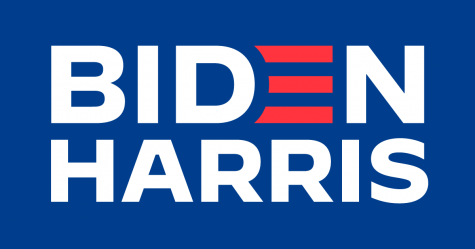Are we living in the midst of a conservative revolution?
November 16, 2016
Election Day has passed and with it we, a currently unquestionably divided country, have selected a President-elect by the name of Donald Trump, a red senate and a red house. The 7th consecutive day of national protest leaves me inclined to think that some people seem to regard this as a “bad move”.
Since he announced his candidacy, Donald Trump has campaigned as a conservative- whether he actually is one or not is irrelevant (I don’t particularly think he is, but I digress- topic for another day). The overwhelming support he has garnered (as a conservative) and the fact that he won the presidential election of the United States of America proves that a majority (at least in terms of electoral votes) of Americans want a conservative in the highest ranking office. America has a “conservative” President-elect as well as Republican majorities in both the house and senate, but what about the rest of the world? But as unique as many Americans may regard this, it is, in many ways, part of an international trend.
The United Kingdom’s whole debacle with withdrawing from the European Union is commonly referred to as “Brexit”. For those living under a rock (or more accurately- for those who have been too caught up in our election), Britain held a referendum (a vote in which everyone in voting age can take part in) on June 23rd of this year on the topic of whether or not the public wanted to withdraw from the European Union. The European Union is an economic coalition (more of a political-economic union) of 28 countries in Europe, they basically make and pass policies to simplify trade (and other things) between each nation involved. From a historical perspective, it’s important to note that preliminary planning for the European Union occurred almost immediately after WW2, and part of the logic was basically this- if the European countries were united under a coalition like this, it would be easy for each individual country to forget a little thing called ‘nationalism’, liberal thinking post-WW2 was (for the most part) about stifling nationalism so a nation like Nazi Germany wouldn’t take hold again. Modern day conservatives tend to support the idea of nationalism, so an anti-nationalism coalition such as the European Union would be unfavorable amongst them.
Fast forward to 2016. David Cameron is Prime Minister of the United Kingdom, the idea of Brexit is gaining traction in the country thanks to Nigel Farage, leader of the right-wing UKIP (United Kingdom Independent Party). The EU Referendum passes with a majority voting to leave- you know, expect in Scotland and Northern Ireland (kinda shows how “united” the United Kingdom really is). PM Cameron resigns, Theresa May, leader of the Conservative party, takes his place and it is currently unclear when the UK will officially withdraw.
This conservative trend is not only found amongst our English speaking allies. The next French presidential election is going to take place April and May of 2017, François Holland, member of the Social Party and current president is eligible to run for his 2nd term, The Republicans (Les Républicains) have yet to choose a candidate (should be decided by the end of November 2016), but I would like to focus attention on Marine Le Pen, leader of the far-right National Front. Le Pen has been gaining substantial popularity, amongst the French public, so it seems that the country, like others, may be trading in their liberalism for conservatism. Still a few months until that election, so only time will tell.
As you can see, it seems like countries once believed to be liberal strongholds may be leaning rightwards, towards electing conservative officials and supporting conservative legislation or ideals, and I personally predict other countries will follow suit- even the most leftwards leaning countries, like Germany, have officials like Chancellor Angela Merkel with approval ratings hitting 5-year lows.
So we’re in the middle of a world-wide conservative revolution. What does this mean? Is this particularly a bad thing? No! Absolutely not, not in the least bit. The civilized west lives in a society where the people make the decisions. If the people want to uphold conservative ideals, it is their right to have their desires in government represented- protests will never deny a nation of its voice, and if the votes don’t go in favor of your opinion, I feel like you have to accept them regardless. I feel like most people want democracy a la carte, they only support democracy when it decides in favor of their opinions, and anarchy when it doesn’t, protests and angry mobs don’t solve anything. Like the great president Abraham Lincoln said, “There is no grievance that is a fit object of redress by mob law”.







